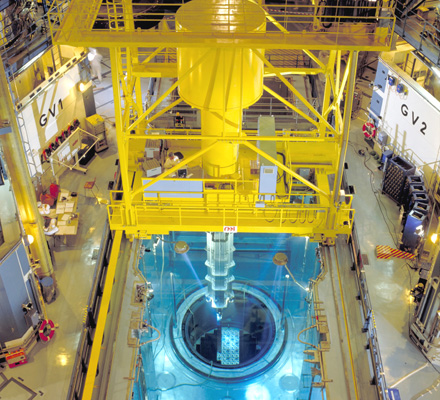Grenoble INP - Ense3 trains its future engineers in a systemic approach to nuclear energy. As Laurent Davoust, professor at Ense3 and researcher at SIMaP, explains: "Once the nuclear reaction has been controlled, all that remains is to convert the heat generated by the fission into electricity. This requires expertise in thermal hydraulics, electrical engineering, automation and supervision - all of which feature on several of our courses". The nuclear energy engineering (IEN) course at Ense3 provides students with the scientific and technical expertise needed to understand systems for generating nuclear energy. In addition, it helps students to acquire a systems view of the entire energy production chain as well as expertise in the complex modelling and simulating tools involved. Moreover, Grenoble INP (which alone trains one nuclear energy engineer in six in France) has agreed to steer a project to set up an institute for training engineers in China. Inaugurated in September 2011, the aim of the Franco-Chinese Institute of Nuclear Energy (IFCEN) is to provide a French-style training to between 100 and 150 Chinese engineers a year in nuclear engineering to meet the growing demand for civil nuclear energy from Chinese industry and French partner companies.


SUMMARY
- Editorial : Jobs for at least 40 years!
- Preparing for the future of the nuclear industry
- The nuclear industry also needs more general profiles
- Why train engineers in nuclear energy?
- A promising future for professions in the nuclear sector
- Thorium: the green future for nuclear power?
- IFCEN: a project in support of the French nuclear industry
- The importance of materials in the nuclear sector
- First-hand account from Boris Supiot, an engineer at AREVA
- Millennium interview: Nearly 50% of the workforce needs to be replaced





